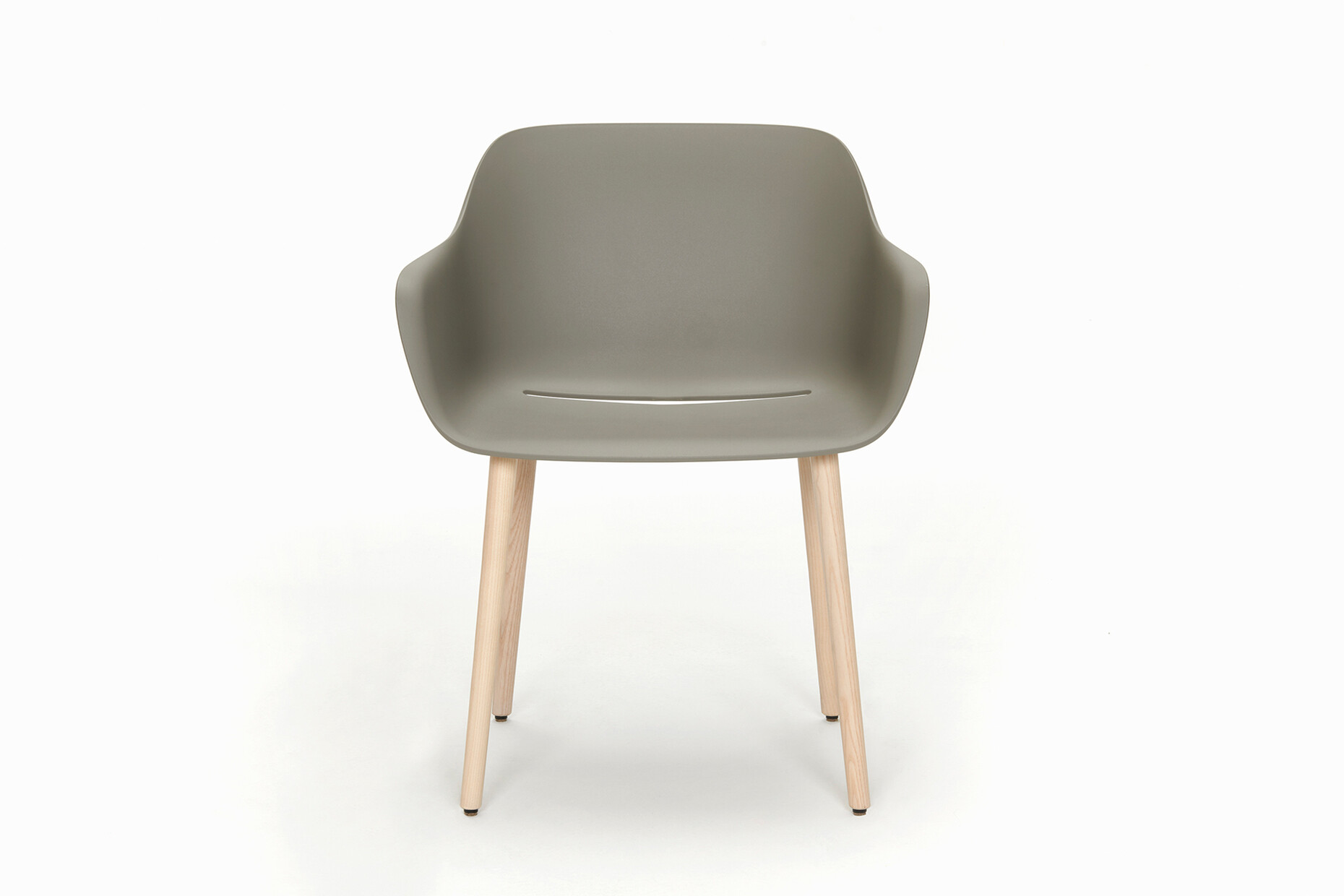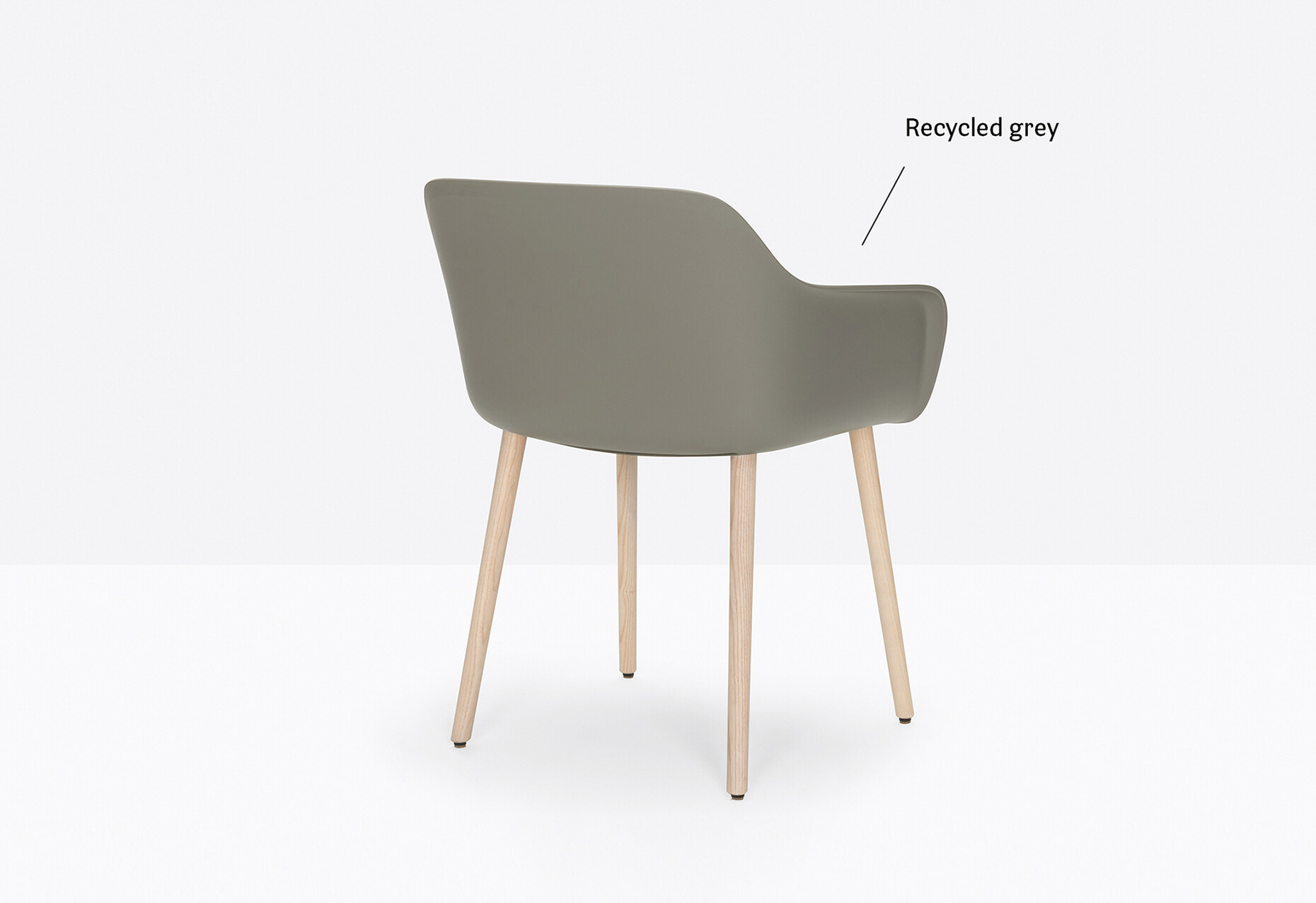STYLEPARK PEDRALI
Stronger together
“On the topic of sustainability, you might well be tired of hearing visions and be ready to see some concrete solutions,” says Eugeni Quitllet. Products that prompt change. Pedrali has taken up the challenge and developed a plastic made from 100-percent recycled polypropylene. It debuts in the range with two designs from this year: “Remind” by Eugeni Quitllet, taking occasion by the launch of the new chair, and “Babila XL” by Odo Fioravanti. More precisely, the plastic material is made from inputs of which 50 percent comes from local consumer households and 50 percent from industrial waste. What’s crucial here is the consistently high quality of the composition, which Pedrali ensures by means of precise tracing of production origins in Italy. Exploring the right mix of recycled plastic and its onward processing posed a tall task, since “100-percent recycled polypropylene has different properties than does the standard product,” Giuseppe Pedrali explains. Ultimately, the material’s robustness, processing and aesthetics had to match the high quality of the conventional range, and that’s something the Italian furniture manufacturer has ensured by running countless product tests. The result are versions of the armchairs “Babila XL” and “Remind” in a natural stone grey called “recycled grey”, that appears harmonious and unobtrusive. “Our goal is to work collectively to create suitable products that are long-lasting in both their material and form. It is a process that stemmed from the desire for change,” says Odo Fioravanti. The 100-percent recycled plastic is a logical step forward, because sustainable production has been a matter of course for Pedrali from the outset.
Certification according to ISO 9001 and ISO 14001, which specify the requirements for effective quality and environmental management within a company, sets out the guiding principles for the longstanding family-run business. “For a long time now, our molding process has incorporated recovery of industrial waste and its recycling,” says Giuseppe Pedrali. The company’s commitment to environmentally conscious production is evident in the amount of care it takes to offer these new “recycled grey” versions of existing designs, such as “Babila XL” and “Remind”, into the new material. “As regards the individual mechanical properties of each product, it is important to check that the use of this material does not affect its technical performance,” explains Giuseppe Pedrali, adding: “Polypropylene is versatile, and it is important to understand that precise sorting of waste offers the basis for a high-quality design made of recycled materials. All this represents one step forward on the path our company has been following from the outset: steering attention towards the materials used in the production chain, optimizing consumption of raw materials and waste, and reducing emissions.” The result is a strong statement on the part of Pedrali in favor of sustainable production, but also an appeal to each individual’s environmental awareness. After all, a precise recycling process calls for a joint effort. “Dealing sustainably with materials and understanding the amount of care required for this process should be self-evident,” says Eugeni Quitllet.






























